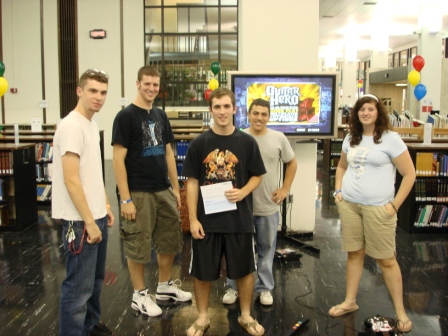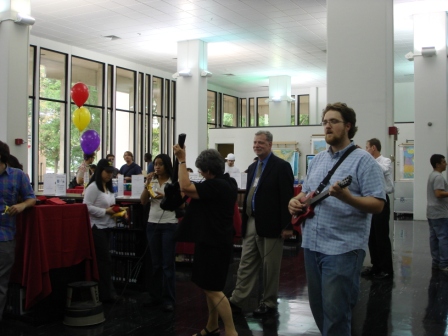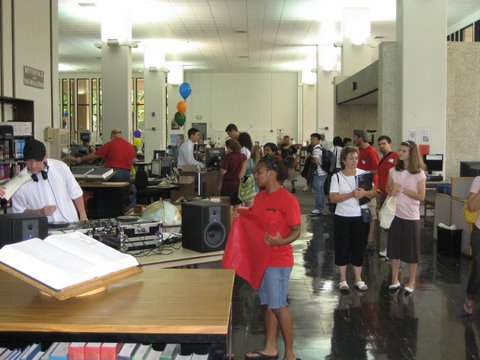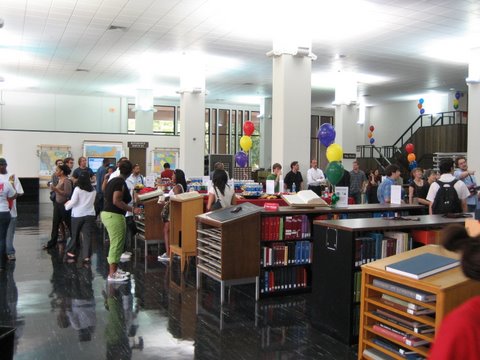The following recaps the more significant history-related acquisitions in the just-ended fiscal year of 2006-2007:
House of Commons Parliamentary Papers (1801-1900) – HCPP is perhaps the most important electronic resource acquired for the History Department in FY 06-07. “The House of Commons Parliamentary Papers are vital to the historical record of Britain, its former Colonies and the wider world. They are among the richest and most detailed primary sources for the history of the past two centuries, and are fundamental to an understanding of current legislation, policy making and the political environment. HCPP online, with searchable full text, and detailed subject indexing, makes it possible to fully exploit the enormous potential of this resource for the first time” (HCPP About). HCPP does not include Hansard’s Parliamentary Debates, which are available in printed form from the Library Depository. For more information about content and coverage see the Guide to Parliamentary Papers.
Periodicals Index Online (PIO) – Formerly known as Periodicals Contents Index / PCI, “Periodicals Index Online is an electronic index to millions of articles published in over 5,000 periodicals in the humanities and social sciences. . . It is unique in combining a broad subject base with deep chronological coverage going back over 300 years” (ProQuest About – Periodicals Index Online). The database indexes many European foreign language journals. For full-text access to over 450 of the titles indexed in Periodicals Index Online, explore the complementary database Periodicals Archive Online (PAO). The over 130 full-text history titles in PAO can be accessed by clicking on “Find Journals” from the homepage, then on “Find Journals by Subject”; a right-hand column will display a list of subjects, including “History (General) [94 journals]” and “History (The Americas) [37 journals]”
British Periodicals Online (Collection I) – This database consists of full-text access to approximately 160 journal titles published between the late 17th and early 20th centuries. It covers topics as diverse as history, literature, philosophy, science, and the fine arts. British Periodicals can be searched in tandem with hundreds of additional journal backfiles via the aforementioned Periodicals Archive Online. Researchers can also use the online Wellesley Index to Victorian Periodicals (part of C19) to link directly into full-text content in both British Periodicals and Periodicals Archive. “Crucially, the addition of attribution information from the Wellesley Index makes it possible to search for instances of a word or phrase in a given author’s contributions to periodicals even where these originally appeared unsigned or over a pseudonym” (ProQuest About – British Periodicals).
Declassified Documents Reference System (DDRS) – This is the online version of the longstanding printed DDRS. The database currently contains over 78,000 post-WWII declassified documents that originated with the National Archives and U.S. executive branch agencies. The DDRS complements the Digital National Security Archive (DNSA), a similar Temple database containing over 63,000 declassified federal government documents. Though similar in purpose, each of these databases is unique. DNSA is a thematic database that focuses on 29 important events in post-WWII U.S. history (e.g. Cuban Missile Crisis, Iran-Contra Affair, the First Gulf War, etc.). DDRS, on the other hand, contains a much broader collection of materials. Important social and domestic issues are covered. DDRS also provides access to non-U.S. declassified documents from NATO. A minor difference between the two databases is the manner of release and provenance of the documents available. Many of the documents found in DDRS were originally requested by researchers via NARA’s network of presidential libraries. Many DNSA documents, on the other hand, came to light as the result of executive branch compliance with the 1966 Freedom of Information Act (FOIA).
African American Newspapers: The 19th Century (Part XI) – Part XI of this popular and important database includes full-text coverage of The Christian Recorderfrom January 1894 to December 1898. A full-page image upgrade is promised soon.
Thesaurus Linguae Graecae – This database contains virtually all Greek texts surviving from the period between Homer (8th century BCE) and CE 600, as well as the majority of surviving works up to the fall of Byzantium in CE 1453. Note: A polytonic Greek font must be installed on your computer in order to view some texts. With some browsers, you may also be able to input your search in Greek; with others, you may have to input Beta Code or Latin Transliteration. Extensive information about font requirements is available at the TLG website.
The Papers of W.E.B. DuBois – This set consists of 83 microfilm reels of the correspondence of W.E.B. DuBois, one of the most prominent early figures for African-American liberation. Coverage dates range from 1877 to 1965. For information about content see ProQuests’s collection description.
—David C. Murray





